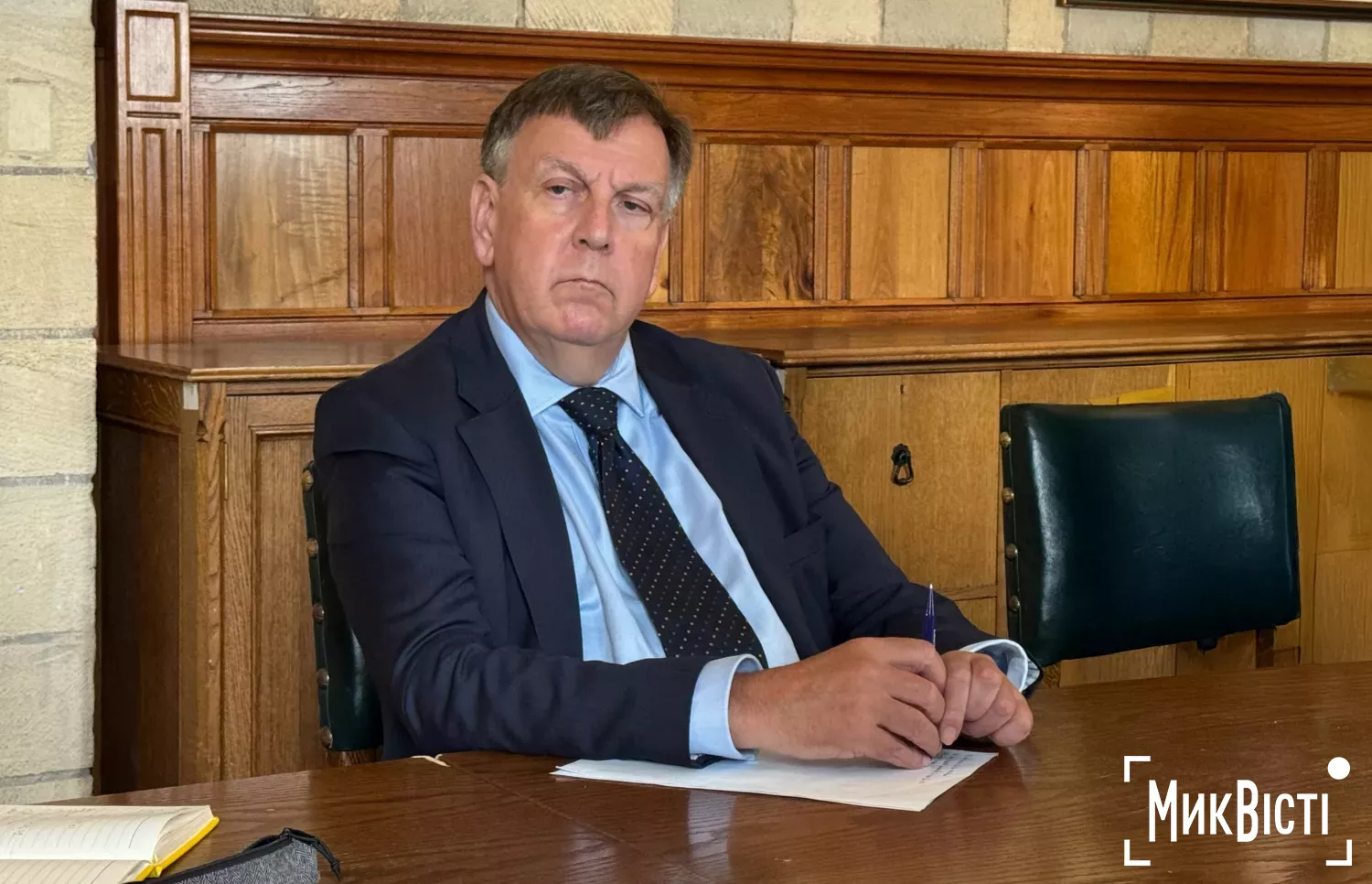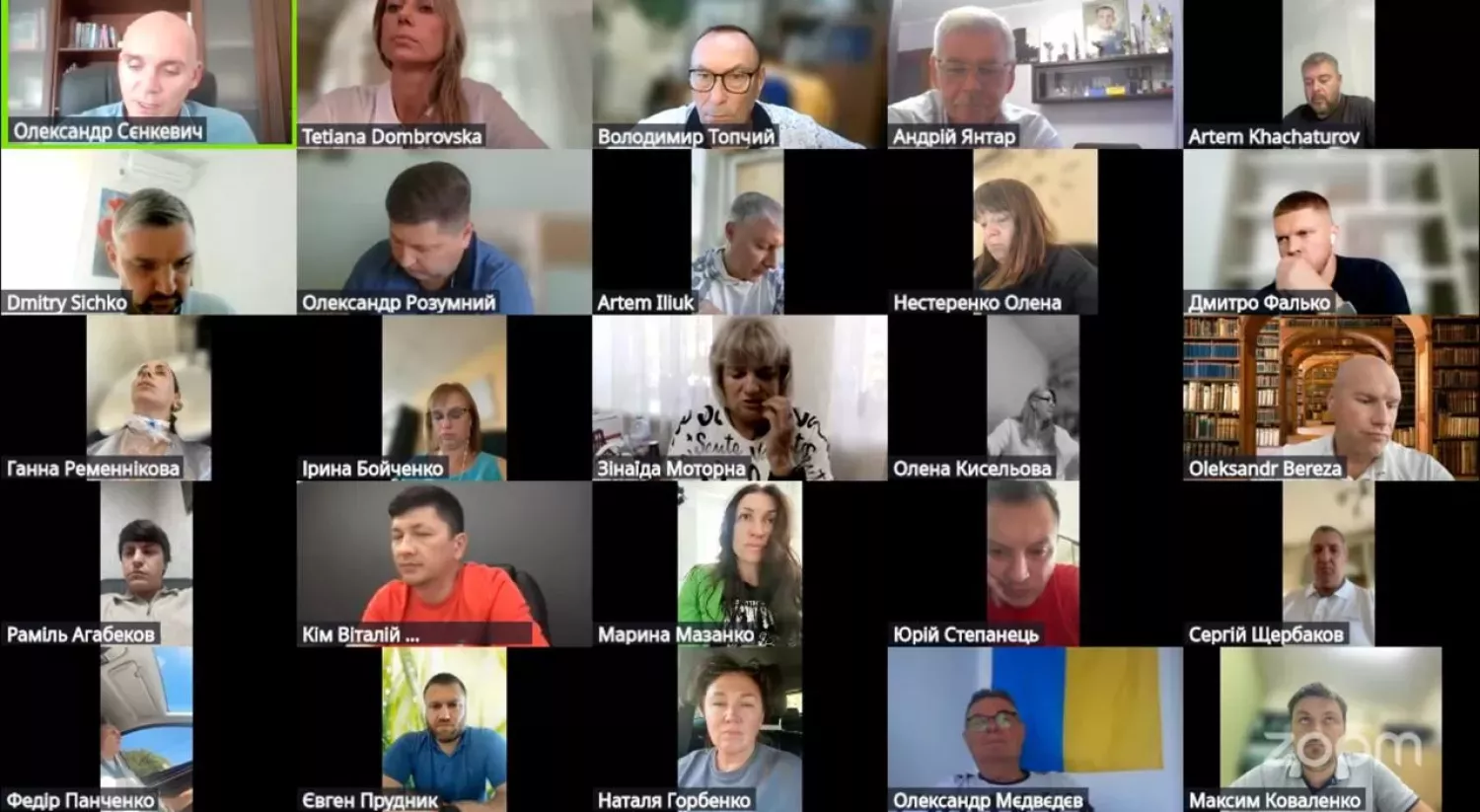British MP tells NikVesti what he thinks about online sessions with cameras off
- Darina Melnychuk
-
•
-
16:00, 29 September, 2025
Sir John Whittingdale, a member of the British Parliament, believes that parliaments should remain open and accessible to the public and the media despite any security risks.
He shared this opinion in response to a question from NikVesti journalist Oleh Dereniuha about restrictions on media access to parliament and self-government in Ukraine.
The journalist asked what would have to happen in the UK for its parliament to be closed to the media and for MPs to start sitting online, some from «barbershops» or their home sofa, and others with the cameras turned off.
«We believe very strongly that parliament is a place where the representatives of the people, the voters, meet to pass laws and debate. And that people should be able to see how this happens in practice. So, you don't need a passport to come and watch the meetings. You have to go through a check to make sure you're not carrying a weapon or anything like that. But just going into the visitors' balcony to watch is still open to anyone who wants to. And we see that as a very important part of democracy. I've watched the Verkhovna Rada many times, and there are completely different approaches. I've seen it come to fights,» says Sir John Whittingdale.
He noted that the British Parliament used to not even have a metal fence to control security. It had to be installed after a number of attacks, including terrorist attacks and tragic incidents with loss of life.
«We have had several attacks on the British Parliament, mainly from Islamic terrorism, but one in particular where somebody drove a car, crashed into pedestrians on the bridge just by Parliament and then came through the gate. He killed a policeman before he was finally shot, actually, by one of the armed detectives who was guarding one of the Cabinet. We've had several members of parliament killed in their constituencies. So one of my close friends was murdered when he was meeting constituents about three or four years ago. The result of that is security is much tighter. Hence the gates, hence the fences. And also I have security when I'm seeing constituents in my own constituency,» explained Sir John Whittingdale.
Separately, the politician said that in the British Parliament, journalists have special places to work, can communicate with MPs, and the filming and broadcasting of meetings is carried out centrally according to established rules.
«In terms of media, we have every newspaper in Britain has a correspondent or reporter who is sent to cover what is happening in Parliament. They have access to a special gallery, they have access that others can't get where they can meet MPs and the filming and broadcasting of Parliament is done centrally. So Parliament itself has fixed cameras that film proceedings and then that is given to any of the broadcasters who want to use it,» the politician concluded.
As a reminder, the mayor of Mykolaiv, Oleksandr Sienkevych, said that he would seek a compromise for further dialogue with the deputy corps in order to «unblock» the work of the sessions of the Mykolaiv City Council.
As a reminder, on 3 September, the second plenary session of the Mykolaiv City Council was supposed to take place, where the deputies were supposed to approve 57 land issues and budget redistribution. However, the meeting failed to take place due to the lack of deputies following a dispute between Mayor Oleksandr Sienkevych and deputy Tetiana Dombrovska over the vote to reform the structure of the city hall.
The session continued on 4 September. During the session, Vitalii Kim, head of Mykolaiv's regional administration, responded to the doubts of city council members about the feasibility of funding the regional municipal guard from the city budget. He reminded them that the guard is involved in air defence and «90% of its work is aimed at protecting Mykolaiv». At the session, the deputies also approved amendments to the budget for 2025. The city's revenues have increased by over 623 million hryvnias due to additional taxes and subventions from the state.
On 11 September, the deputies of Mykolaiv City Council gathered for the fourth plenary meeting of the session to consider land issues. However, due to insufficient votes, the meeting had to be postponed again. Vitalii Kim, a deputy and chairman of the Mykolaiv Regional State Administration, called the session «a sham».

